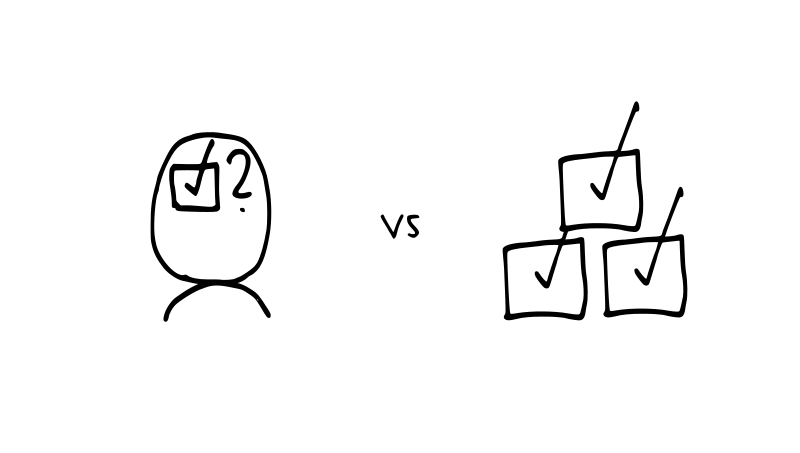The Age of Existential work

The work of atoms is largely in the past. Now, we work with bits.
While bits are more comfortable to deal with, they are also ephemeral and copyable. This affects the human psyche, especially for those who could describe their work as "content creation."
You see, physical work is clear cut. You take a log, you take an ax, and you hit the log with the ax. Then you take it home, and put it in your stove. It's clear what to do, every step of the way. Log, ax, boom. This is the work of the past (unless you're me, I do this daily). It's clear cut. There's nothing to doubt. Do you want to be warm? Good. You need to split some logs then.
Most modern work lacks that simplicity. It's complex, vague, non-linear, and often unsatisfying. Technological progress has eliminated much of the mundane-yet-satisfying work, and left us with vague and abstract ideas to somehow bring to life in a useful way. There is also no peace to be found in physical exertion at the end of the day, unlike with manual work.
What did you do today?
"I was in meetings for 5 hours."
"I wrote a draft of a blog post."
"I change the color of a button."
This affects our mental health. The differences between one version of a digital file and another are often negligible. For those of us with the tendency to doubt ourselves, it's much easier to do so. Close your laptop and all signs of your day's work disappear. Just thinking about what we did each day can bring us on the verge of a mild existential crisis.
"What am I doing? I'm just typing on the keyboard and clicking. Others have real jobs. What if I lived on a farm instead?"
This is even more pronounced with Internet-based work. Whether it's coding, writing, or video production, the feedback is often unclear or unpredictable. And while for some formats (tweet), the feedback is fast (likes), it's still quite generic. Unless a person specifically messages you as the creator, describing what they did as a result of absorbing a particular resource, you don't know if it was any good.
And even if you're relatively sure of your work, there's a whole nother problem: the so-called knowledge work is about ideas. You have an idea, you express it. But often, the idea is not really your own. You can think of other people who've had a somewhat similar idea. And so you begin to question your originality and whether you're really adding anything at all, or just rehashing the same thing a hundred other people have said (this may be a topic for another time). And what if the idea and your particular expression of it (words, code, media) isn't useful anyway? What if your supposed contribution, the very idea you've tried to manifest, is not a contribution at all? That possibility hurts the ego. Ergo, another existential crisis. "What am I doing with my life?"
All these things add up. Ephemeral nature of the work, lack of specific or timely feedback, the possibility of being just plain wrong... And so uncertainty, doubt, and crises of meaning arise much more often. For every one of the problems, there likely is a remedy: a solution, a mindset change, an argument. But all those problems together can overwhelm us, especially if we don't know or remember the right solution in time, or if we're simply having a bad day.
"Work" is much more existential than ever. That's not going anywhere. The best we can do is to acknowledge that, and when that existentiality crystallizes in a moment of despair, take a step back. Pause. Go for a walk. Mull it over. Figure out what the likely remedy for the current spiritual malady is, and then get back into the fight. That's how we keep ourselves from going down the path of pessimism, cynicism, or nihilism, which can be attractive in moments of weakness, but ultimately just make the whole situation worse.
So, are you feeling existential about your work? Yeah, that's Thursday. Tell me something I don't know.